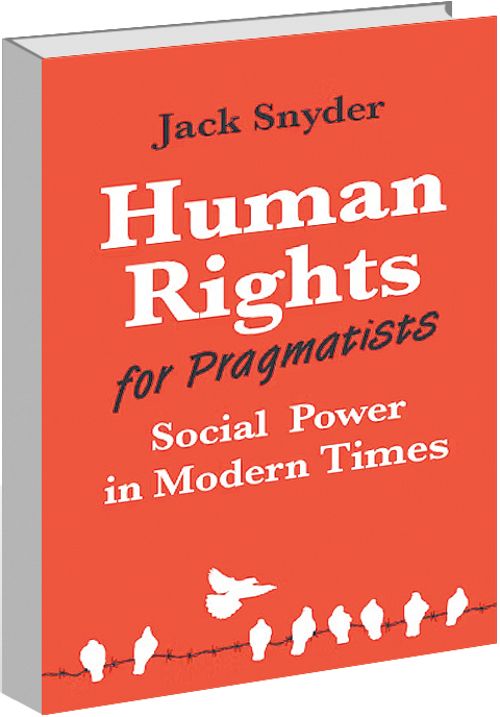Human Rights for Pragmatists by Jack Snyder. Princeton. Pages 310.Rs 2,606
Book Title: Human Rights for Pragmatists
Author: Jack Snyder
Shelley Walia
Jack Snyder in his recent book, which is an assimilation of his internationally recognised human rights scholarship, speaks of the significance of finding a connection between “rights and democracy, such as high per capita income, a diversified economy, an educated population, and usable administrative institutions”. The approach suggested by him for consolidating human rights in a given context must consider “what kinds of social interests, configurations of social power, political coalitions, institutional arrangements, and political ideologies can be mobilised to establish a plausible foundation for rights”.
His main objective is to draw attention to the centrality of human rights in the modern state, where it is vital for a liberal system to buoy up full stability through generating better living conditions. This kind of centrality was absent in China where the foundations of success did not establish any preconceived basis of a “functional need for rights, liberal legality, or democratic accountability”.
The emphasis on human rights calls for focused attention to the question of spurring nations to honour the rights of the citizenry. Such a call for the scrutiny of the various functions of the state would hasten the advent of the question of human rights to the centrestage. To achieve this, it is pragmatic to realise that the power of the state must take this task enthusiastically as binding. If the power of the state shows reluctance in backing the cause of human rights, any kind of activism will only spark serious repercussions that would thwart the process of defence of the general public against state oppression or indifference. Snyder’s assertion is that the achievements, disappointments, and holdups of the rights revolution are practically better understood within the forces of liberal modernity.
Snyder suggests a repression-free state that cares for human rights without any bias or partiality so that rules of equal treatment stand at the forefront of the crucial concerns of the state. This would be possible when the interests of the prevailing alliance coheres with the question of seeking human rights as central to civil society. The state would therefore need stronger institutions that keep abreast of the democratic rules of protecting basic human rights: “The main advocate for rights-based norms is the powerful group that will benefit most from their adoption and the weakening of traditional favouritism.”
Snyder thus differs from the conventional activist approach to the rights issue that stresses a more moral and legal position based on ideologically-centred proclamations of norms and expositions. Such a narrative that intends to “name and shame” the violators is different from Snyder’s story that is based on an intense exercise of survey. He arrives at the conclusion that more than bringing the culprits to book, it must be appreciated by the stakeholders that to enable rights to flourish, “societies [must] become modern with rising middle classes and democratic institutions”.
Therefore, in “modernising societies, human rights are embraced not because of their intrinsic ethical virtues or the dogged work of small groups of idealists, but because they serve the interests of a country’s dominant political coalition”. Snyder shows that advances are made “primarily when large coalitions emerge to push for expanded political rights as part of a wider agenda of economic and social reform”. Indeed, the primacy of power and politics facilitates the entrenchment of the very culture of human rights. This approach, according to Snyder’s study, demonstrates to be more successful than the approach with “idealists-defined aspirational goals”. Support from mainstream mass movements and reform parties that expand their power through practical compromises indicates better results.
Prof Jack Snyder, with his expertise in world politics, urges human rights advocates to build a bridge between power and law, concentrating unswervingly on popular appeals and democratic politics. The success of such an approach will depend on the intensity with which the illiberal forces are challenged by disallowing liberal ideas to be subverted. Forces of democracy must remain vigilant and not play into the hands of the far-right. The tendency to co-opt the forces of liberalism through a false rhetoric is ever so often based on propaganda and deceptions used as trappings of manipulation for the furtherance of power, underpinned by a brand of unconstitutional politics.














